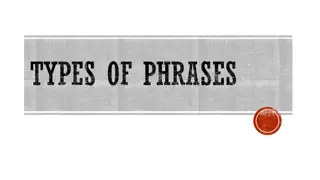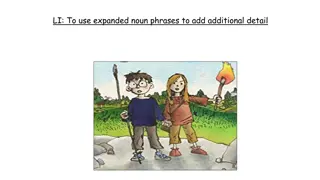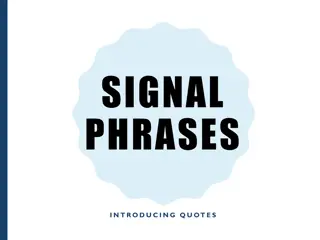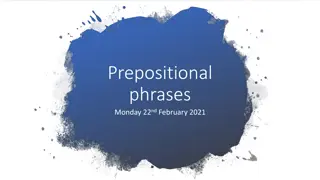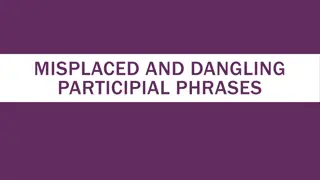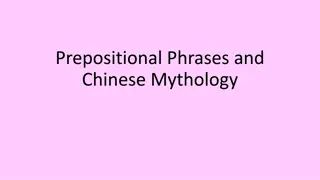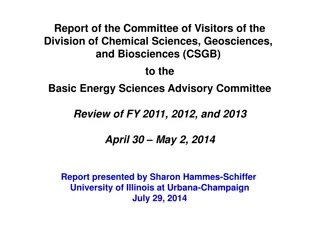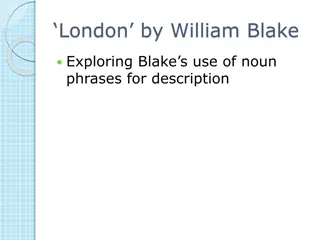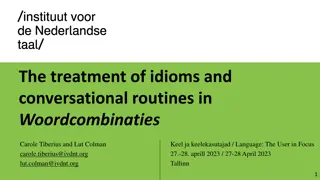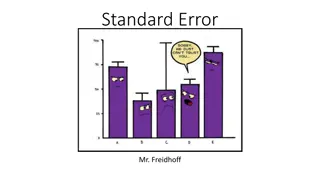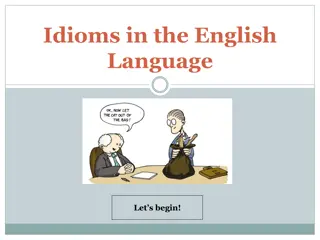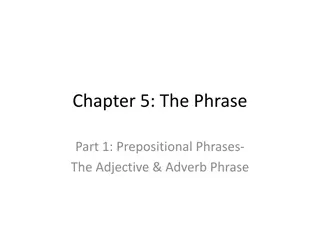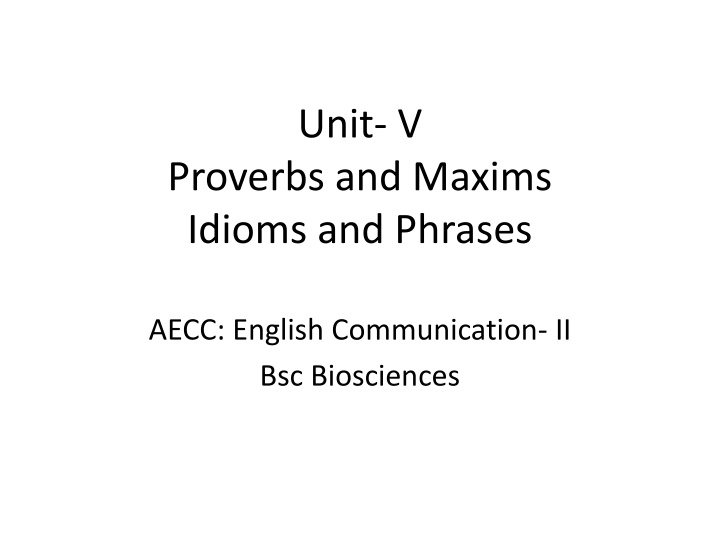
Learn English Proverbs, Idioms, and Maxims for Effective Communication
Explore the world of proverbs, idioms, and maxims in English communication. Understand the meanings behind popular sayings and expressions to improve your language skills. Discover how these traditional phrases convey wisdom and insight through common sense and experience.
Uploaded on | 2 Views
Download Presentation

Please find below an Image/Link to download the presentation.
The content on the website is provided AS IS for your information and personal use only. It may not be sold, licensed, or shared on other websites without obtaining consent from the author. If you encounter any issues during the download, it is possible that the publisher has removed the file from their server.
You are allowed to download the files provided on this website for personal or commercial use, subject to the condition that they are used lawfully. All files are the property of their respective owners.
The content on the website is provided AS IS for your information and personal use only. It may not be sold, licensed, or shared on other websites without obtaining consent from the author.
E N D
Presentation Transcript
Unit- V Proverbs and Maxims Idioms and Phrases AECC: English Communication- II Bsc Biosciences
PROVERB A proverb is a simple and insightful, traditional saying that expresses a perceived truth based on common sense or experience. Proverbs are often metaphorical and use formulaic language.
Some examples of proverbs PROVERBS A bad workman always blames his tools MEANING Blaming the situations instead of mastering the skill Something is better than nothing We feel more affection for our loved ones when we part from them A bird in hand is worth two in the bush Absence makes the heart grow fonder
IDIOMS Idioms are defined as expressions peculiar to a language. They play an important role in all languages. Types of Idioms: 1. Many verbs when followed by various prepositions, or adverbs acquire an idiomatic sense. 2. Idiomatic phrasiology
Idioms made from Verbs followed by Prepositions BRING- Bring about- Cause to happen Use- His folly brought about his ruin. Bring out- to show Use- Our teacher often tells a story to bring out the meaning of a lesson.
Idiomatic Phrasiology To eat humble pie- To apologize humbly Use- In spite of all his brag he had to eat humble pie. Turn a deaf ear- to disregard Use- He turned a deaf ear to my advice.
MAXIMS A few words that express a rule for good or sensible behaviour. It s a simple memorable line, quote or rule for taking action and leading a good life. It is a thought with moralistic values that intends to motivate individuals.
Some examples of Maxims It s better to be safe than sorry. You re never too old to learn. Nothing ventured, nothing gained. No pain, no gain. We promise according to our hopes and perform according to our fears. If a job is worth doing, it s worth doing well.
PHRASES A phrase is a small group of words that communicates a concept but it is not a full sentence. We use phrases in our writing and our speech everyday.
Some examples of Phrases To bank on someone/ something- to guess that something is probable. Use- I am banking on them to win the match. To drop someone a line- to contact someone through email, letter or a phone call. Use- Remember to drop me a line as soon as you reach France so that I know you are safe.

